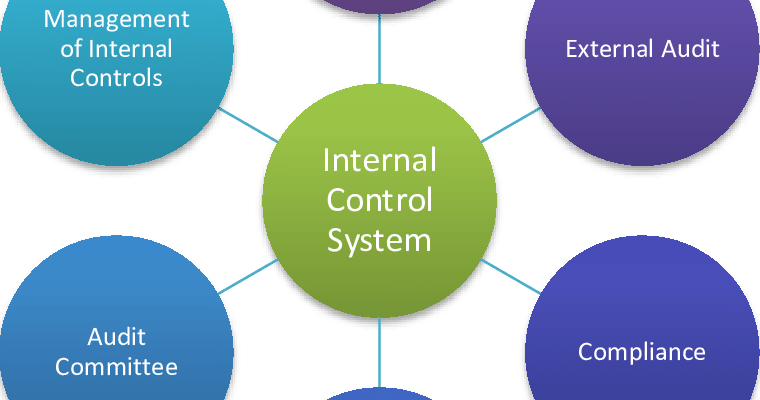Tax Compliance in Nigeria
Tax Compliance in Nigeria
Tax compliance refers to the extent to which taxpayers adhere to tax laws, fulfilling their obligations by accurately reporting income, filing returns, and making timely payments. In Nigeria, fostering a culture of tax compliance is essential for enhancing government revenue, funding public services, and achieving sustainable economic growth.
Importance of Tax Compliance
Tax compliance is critical for several reasons:
A. Revenue Generation
- Taxes are the primary source of revenue for the government, funding essential services like education, healthcare, infrastructure development, and security. Increased compliance directly contributes to higher revenue, which is vital for national development.
B. Economic Growth and Stability
- When citizens and businesses comply with tax laws, it leads to more predictable revenue streams for the government. This stability allows for better planning and investment in long-term projects that stimulate economic growth.
C. Social Responsibility and Civic Engagement
- Compliance reflects a citizen’s commitment to their country. It promotes a sense of responsibility among taxpayers, fostering civic engagement and community support through shared contributions to societal needs.
D. Improved Public Services
- Higher compliance rates ensure that the government can adequately fund public services, enhancing the quality of life for citizens and promoting social equity.
Factors Influencing Tax Compliance
Several factors impact tax compliance rates in Nigeria:
A. Taxpayer Education and Awareness
- Education plays a crucial role in compliance. Many taxpayers may not fully understand their tax obligations, leading to inadvertent non-compliance. Public awareness campaigns and educational programs can demystify the tax process, helping individuals and businesses understand their responsibilities.
B. Complexity of the Tax System
- The Nigerian tax system can be complex, with various taxes, rates, and exemptions. Simplifying tax laws and providing clear guidance can encourage compliance. For instance, streamlined tax forms and clear instructions can make it easier for taxpayers to file their returns.
C. Perception of Fairness and Trust
- Trust in the tax system is vital. Taxpayers are more likely to comply if they perceive the tax system as fair and transparent. If individuals believe that tax revenues are mismanaged or that the system disproportionately burdens certain groups, compliance may decline.
D. Enforcement Mechanisms
- The presence of effective enforcement mechanisms influences compliance. Regular audits, clear penalties for non-compliance, and the likelihood of being caught can motivate taxpayers to fulfill their obligations. The Federal Inland Revenue Service (FIRS) has increased its auditing activities to improve compliance.
Tax Compliance Challenges in Nigeria
Despite ongoing efforts, several challenges hinder tax compliance in Nigeria:
A. Informal Economy
- A significant portion of Nigeria’s economy operates informally, with many businesses and individuals not registered for tax purposes. This informal sector complicates compliance efforts, as it is difficult to track and collect taxes from those who do not declare their income.
B. Corruption and Distrust
- Perceptions of corruption within tax administration can erode trust in the system. If taxpayers believe that officials engage in corrupt practices or that tax revenues are misappropriated, they may be less inclined to comply.
C. Inadequate Infrastructure
- Limited access to tax filing resources, particularly in rural areas, hampers compliance. Many individuals lack the means to file taxes electronically or do not have access to proper information about tax obligations.
D. Economic Hardships
- Economic challenges, such as inflation and unemployment, can lead to financial strain, making it difficult for individuals and businesses to meet their tax obligations. During tough economic times, compliance may decline as taxpayers prioritize immediate survival over tax payments.
Government Initiatives to Improve Compliance
To address compliance challenges, the Nigerian government has launched several initiatives:
A. Voluntary Asset and Income Declaration Scheme (VAIDS)
- Launched in 2017, VAIDS encourages taxpayers to voluntarily declare undisclosed assets and income, offering reduced penalties for compliance. This initiative aims to increase the tax base and improve overall compliance rates.
B. Digitalization of Tax Administration
- The FIRS has implemented various digital solutions to streamline tax processes. Online registration, e-filing, and electronic payment systems reduce the administrative burden on taxpayers and make compliance more accessible.
C. Public Awareness Campaigns
- Ongoing campaigns aimed at educating the public about the importance of tax compliance and the benefits of contributing to national revenue have been initiated. These efforts include seminars, workshops, and media outreach to demystify the tax process.
D. Taxpayer Service Centers
- Establishing taxpayer service centers across the country provides assistance to individuals and businesses seeking help with their tax obligations. These centers can offer guidance on tax laws, filing procedures, and compliance requirements.
Consequences of Non-Compliance
The repercussions of failing to comply with tax obligations can be significant:
A. Financial Penalties
- Taxpayers who do not comply may face fines, interest on unpaid taxes, and penalties for late filing. These financial repercussions can accumulate, leading to substantial debts.
B. Legal Action
- Continued non-compliance can result in legal actions, including seizures of assets, court proceedings, and even imprisonment in severe cases of tax evasion.
C. Loss of Benefits
- Taxpayers who fail to comply may miss out on potential benefits, such as tax credits, deductions, and incentives designed to support businesses and encourage investment.
D. Economic Impact
- High levels of non-compliance can lead to decreased government revenue, which may affect public services and infrastructure development, ultimately impacting economic stability and growth.
Strategies for Enhancing Tax Compliance
To improve tax compliance rates, several strategies can be implemented:
A. Simplifying Tax Processes
- Streamlining tax forms, reducing bureaucratic hurdles, and providing user-friendly online platforms can encourage compliance. Clear guidelines and support for taxpayers can demystify the process.
B. Strengthening Enforcement Mechanisms
- Increasing the frequency of audits and enhancing penalties for non-compliance can serve as a deterrent. The government can focus on high-risk sectors or individuals known for tax evasion.
C. Promoting Digital Solutions
- Encouraging the use of electronic filing and payment systems can simplify compliance for businesses and individuals. The government can provide incentives for early adoption of these technologies.
D. Building Trust through Transparency
- Transparency in tax administration can improve trust among taxpayers. Regular public reporting on how tax revenues are utilized can reassure citizens that their contributions are being managed responsibly.
Conclusion
Tax compliance is a vital component of Nigeria’s economic framework, directly affecting government revenue and public service provision. Addressing the challenges to compliance, enhancing taxpayer education, and implementing effective government initiatives are crucial for improving adherence to tax laws. A culture of compliance benefits everyone, fostering economic growth, social responsibility, and a stronger nation.
If you have specific areas within tax compliance you’d like get more information on kindly contact us at :
E-mail: care@sowprofessional.com
Website: www.sowprofessional.com
Phone: 07038254989
Whatsapp: https://wa.me/2348152451523



